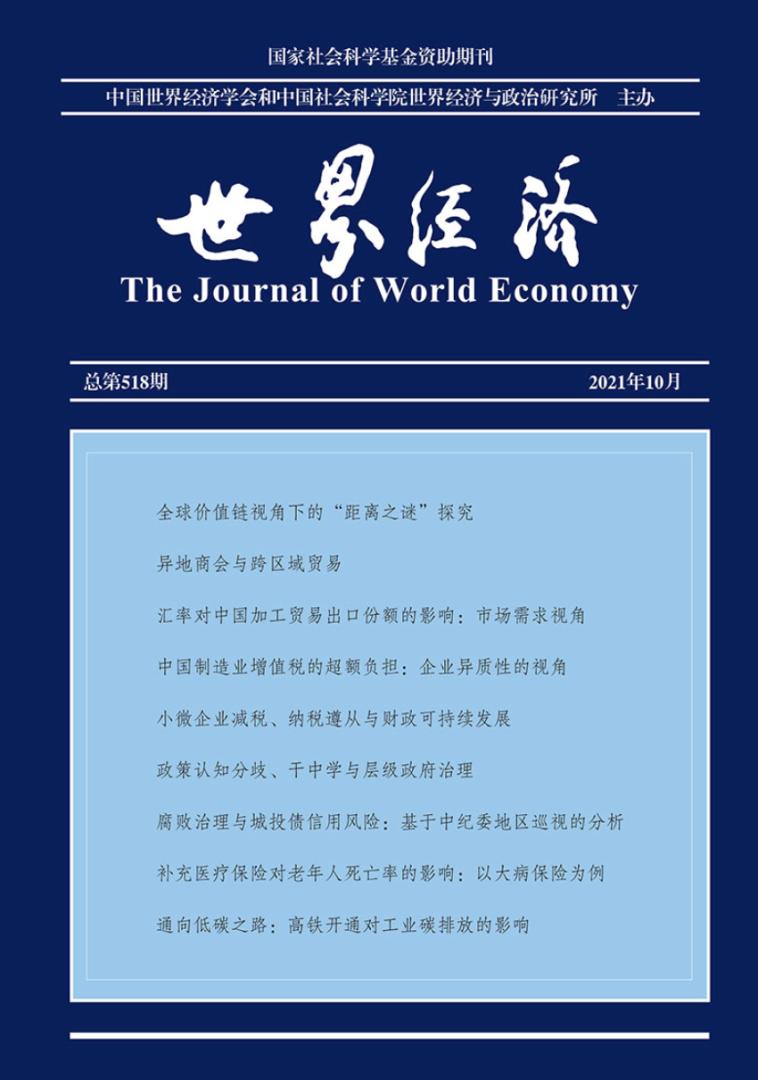The paper Tax Cuts for Small and Micro Enterprises, Tax Compliance and Fiscal Sustainability co-authored by Dr. Li Haonan from School of Public Finance and Taxation of SWUFE and Dr. Guo Yannan from School of Economics and Management of Tsinghua University was published in The Journal of World Economy Issue 10 (2021).

The dialectical relationship between tax cuts, fee reductions and fiscal sustainability can be summed up broadly as "replenishing finances by freeing up water to raise fish", i.e. cutting taxes to stimulate the economy, which in turn expands the tax base. This work also reveals another important aspect within the dialectical relationship, which is based on the influence of tax cuts on tax compliance. Based on data from the National Tax Survey between 2010 and 2015, taking the change in the income tax preferential policy of small and micro enterprises as a quasi-natural experiment, and adopting the difference-in-differences technique, the following conclusions are drawn: (i) tax cuts can significantly improve corporate tax compliance with additional dividends, in addition to stimulating economic growth; (ii) the promotional effect of tax cuts on tax compliance is most significant in smaller enterprises and enterprises that do not enjoy other preferential tax policies, with the function of "helping a lame dog over a stile"; and (iii) the promotional effect of tax cuts on tax compliance can offset around 20% of tax revenue losses directly caused by tax cuts. The existence of this mechanism has been significantly alleviating the tax burden brought about by tax cuts, and has been providing an important additional role for fiscal sustainability during the period of tax cuts and fee reductions, constituting an additional dividend from tax cuts.
The authors believe in the multiple dividends brought by appropriate policies. Against the pressure of an economic downturn, a tax preferential policy could work as a major macro-economic measure, by helping enterprises with their burdens and growth, to boost the economy and improve corporate tax compliance. Consequently, the promoted extractive capacity of China’s taxation system could power its high-quality economic development.

Li Haonan, who holds a PhD in economics, currently works as a lecturer in School of Public Finance and Taxation, SWUFE. His main research interests include tax compliance, tax cuts, and optima tax systems. Li’s papers could be found now in Management World, The Journal of World Economy, Finance & Trade Economics, Public Finance Research, Taxation Research, and other top journals.
